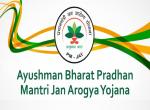I was a stripling short of twenty-three years when I joined as Assistant Collector at Morena after completing my training at the IAS Training School at Metcalfe House. Morena can be frightfully hot in the summer and my training required almost constant exposure to the sun. I developed a bad attack of prickly heat, which turned into an infection which spread through the hair roots and caused me to burst out in painful rashes. I was referred to the Medical College, Gwalior, where I was diagnosed as having a fungal infection for which the doctors prescribed medicines and subjected me to a course of superficial X-ray therapy. This only aggravated my problem, caused my hair to drop out and my skin to become brittle. So much for modern medicine.
One week end I came to Delhi to visit my mother, who saw my condition and advised me to meet an old family friend, a somewhat irascible colonel who had retired from the Indian Medical Service. Col. Kataria was an old fashioned doctor, a wonderful clinician who first diagnosed a disease and only then gave medicine. He had one look at me and wanted to know what I had done to myself. When I told him about the course of treatment I had undergone he shouted that the doctors who treated me were butchers, I did not have any fungal infection but had a relatively simple infection called seborrhoeic dermatitis, which is simply an aggravated form of prickly heat which affects the sebaceous glands. He gave me a cetrimide based shampoo, a lotion consisting of castor oil and lavender oil and an ointment which had both menthol and salicylic acid, which is the main ingredient of aspirin and told me to use these for one week. By the third day the infection began to recede and within one week I was fully cured. The sequence to this was in my next Sub division, Kannod. In the wild and woolly Bagli Tehsil of the Subdivision we had a doctor in charge of the primary health centre, called Dr. Joseph, who hailed from Kerala. When I told him my story he said that if I wanted to avoid any skin infection in the future I should prepare a decoction by boiling a handful of neem leaves, add a mug full to a bucket of water and bathe with it. I followed his advice and, touch wood, have never had a skin problem. I bless Dr. Kataria and Dr. Joseph for curing me with remedies which were virtually herbal. Unfortunately they could not restore the hair I had lost, thanks to the doctors at Gwalior.
One can wonder why I am telling stories about myself and referring to grandma’s recipes in an article aimed at addressing the extremely important issue of governance. Well, sometimes parables and fables convey a far more serious message than scholarly studies and long orations based on theories of politics and the philosophy of government. In other words, in the field of government there is room for grandma’s remedies, or tried and tested methods of administration. This paper attempts to explore these old, reliable systems to see whether we can find solutions for the myriad problems of governance we are facing.
It is the objective of every government to govern, that is, to control and direct the affairs of the country and for this purpose to deliver to the people that which would promote their welfare. Even the worst of dictators has not disagreed with this definition of government because I have yet to come across a dictator who states that he does not desire the welfare of the people. The difference between good government and bad government is a differential view of what constitutes welfare, but on paper at least the objective is to make the country strong, to give people pride, to make people prosperous. When Hitler destroyed the Weimar Republic this is precisely the agenda he placed before the German people and won their confidence adequately to win an election and come to power. What followed is perhaps the most unimaginable of horror stories in the history of the world, but the stated objective still remained the good of the people.
Let us return to India and see the situation here. I refer to the period from when the British took control of this country right up to the present day, when we became an independent, democratic republic. British rule (I refer here to the post 1857 direct rule of the British Government) was based on an understanding that India was a society of laws. British rule was designed to perpetuate, imperial power in India, but the manner of governance was law based and not arbitrary. Therefore, even during the independence movement the British were responsible for maintaining the empire, but always through laws, the enforcement of which also was according to law. Unlike the Gestapo and the Kampetai the police did not have the power of arbitrary arrest and arbitrary sentencing. The police could not hold anyone in custody for more than twenty-four hours without producing him before a Magistrate and the power for dispensing justice lay with Magistrates, Judges and the High Courts and Federal Court, which were not subordinate to the Executive from the sessions court level upwards. The Magistracy and the Police had the same powers then as they have today under the Police Act and the Code of Criminal Procedure in the maintenance of public order and the prevention of offences. The Thanedar and Tehsildar of British days virtually operated under the same laws as we do today, but they were much more effective in ensuring that society remained orderly and crime was controlled and prosecuted. In the matter of law and order every public servant knew where his duty lay and public disorder was dealt with sternly. No officer looked over his shoulder to find out what was expected of him by his official and political masters. If there was a situation to be dealt with the officer on the spot attended to this in the full confidence that he would be supported for his actions. This spilled over into the first twenty years of independence also.
Let me give a few examples. Ambah Tehsil of Morena District had a Tehsildar, P.N. Vats, an outstanding officer by any reckoning. Ambah was one of the worst dacoity affected Tehsils in the whole of India, with many of the gangs being created by issues relating to land disputes. Vats expedited hearing of revenue cases, he was a virtual scourge for his Patwaris if they failed their duty to maintain land records properly and he was extremely pro active in dealing with any case in which land was a bone of contention. He not only brought down pendency of litigation; his activist role actually brought peace to the Tehsil and drastically reduced the incidence of dacoity. He did not wait for orders from his Collector and he certainly did not heed or tolerate any undue political interference in his work. What he wanted was to be effective as an officer and provide good government to Ambah.
The second case is of Inspector Bitta Singh, who was Circle Inspector at Sheopur, then a sub-division of Morena. An extremely ugly dispute broke out over a temple and a mosque and the Hindu Mahasabha was up in arms against the Muslims. The situation was extremely volatile and could have resulted in a major communal riot, which would have spread to the entire region. This outstanding police officer, without waiting for orders from anyone, immediately intervened, arrested those who were trying to foment trouble, launched aggressive patrolling by the police and created an environment in which wrongdoers trembled, peace was maintained and there was no communal riot. The District Magistrate and the Superintendent of Police also played their role by fully supporting the man on the spot, with the administration at sub-division level achieving something which today several battalions of armed police are unable to do.
The third case is of Sub Inspector Maluk Singh, who was the Station Officer of the police station at Nagda. Nagda has a large industrial establishment based on GRASIM. There was trade union militancy which, unfortunately, was fragmented. Suddenly trouble flared up and before the district administration could be fully aware of what was going on the situation became really incendiary in Nagda. Maluk Singh did not have a large force available to him but he suddenly grew ten feet tall and by legal action, threat, persuasion and every other means which lay within law he was able to bring warring factions together, put the fear of God into them, force the management and workers to sit together for a negotiated settlement and he achieved within two days what today massive government intervention cannot do. Peace was maintained at Nagda because of the initiative of this fine young police officer. I am mentioning these three cases because I am witness to what happened both in Morena and in Ujjain, in the former as Assistant Collector under training and in the latter as Collector and District Magistrate. If the man on the spot is trusted and is empowered to act there is no situation in India which cannot be tackled.
There being continuity between the Government of India Act 1935 and the Constitution of India, the only real change which has come about between how the British governed us and how we govern ourselves is that under Government of India Act we were a limited democracy whereas under the Indian Constitution we are a fully democratic republic. In a democracy it is not the bureaucracy which rules but rather the elected representatives of the people who, as members of the Council of Ministers, take the policy decisions relating to government. Nevertheless we continue the old system where the Head of State exercises executive power through officers subordinate to him, the said powers being exercised on the aid and advice of the Council of Ministers. This, however, does not in any way change the old position about India being a country of laws, in which the laws are framed by the legislators but are implemented, within the policy approved by the Council of Ministers, by officers appointed by the President or the Governor as the case may be. The law vests certain powers in officers and these officers are required to exercise their powers freely, fairly, without interference and in accordance with the law. For example, Chapter X of Cr.P.C authorises an Executive Magistrate or a police officer to command an unlawful assembly to disperse and on its failure to do so, to take such necessary action to disperse it as may be called for, including the use of force, even lethal force. The Code of Criminal Procedure does not say that in exercising this power the Executive Magistrate or the police officer will seek the permission of a politician, a superior officer, or any other authority. He has the power, he is required to maintain order; he must ensure that there is public peace and, therefore, he is both free and duty bound to take all necessary action to maintain order.
How does the system actually work? In Bombay the Shiv Sena decides what is lawful and what is unlawful and the police station stands by as a spectator. Every riot is an offence and every mob which indulges in rioting is an unlawful assembly. When communal violence occurs why do police officers not take action as they are authorised to do by the Code of Criminal Procedure? It is not for want of legal authority but rather because the exercise of legal authority is now almost out of fashion. Every police officer, every magistrate knows that if he does take action he will not necessarily be supported, the press will probably come out with a biased view and political pressure will result in action against the officer rather than support for him. Therefore, Magistrates and police officer just do not act because in India acts of omission are still not really punished. It is now very rare to find a Bitta Singh or a Maluk Singh. Instead one finds officers of the type who now man the Maharashtra Police and allow Shiv Sainiks to disrupt the peace, but will not do their duty to prevent this in the interest of the citizen at large.
Law and order is only one aspect of government and at the top end of the administrative pyramid we have the Council of Ministers and the Secretaries to Government who are required to take decisions within the overall umbrella of the Rules of Business of the Executive Government. In Madhya Pradesh, for example, there are the Business Allocation Rules which allocate business between different departments and then there are the Rules of Business of the Executive Government whereby the Governor ordains how the business of government will be conducted. For example, in Madhya Pradesh, there are three categories of cases, those cases which are to be brought before the Council of Ministers, those cases in which before final orders are issued by a department the matter will be submitted in coordination to the Chief Minister and those cases which a department is competent to finally dispose of. Under Part V of the Rules of Business there is a procedure laid down whereby a Secretary or a Minister may dispose of a case. A Secretary is permitted to dispose of every case which is of a routine nature, or on which the question of policy has already been settled, as also of matters which the Chief Minister or the Minister in charge direct the Secretary to finally decide. In other words, in a matter in which there is no issue of policy of issue involved the Secretaries are fully empowered to dispose of the case. Unfortunately no Secretary now exercises this power and instead even minor, routine matters are put up before the Minister. Administratively, therefore, there is a form of paralysis in the higher echelons. As was amply proved in the 2G Spectrum allocation case and as is provided by Rule 48 of the Rules of Business of Madhya Pradesh, the Secretary of the Department is personally responsible for careful observance of the rules. This means that if there is a material departure from rules by anyone, including the Minister, the Secretary to Government is responsible to ensure that the matter is brought to the notice of the Minister concerned and, where necessary, to submit the case in coordination so that the Prime Minister or Chief Minister may be made aware of the deviation and give necessary instructions on the final disposal of the case. The question is, how many Secretaries do actually dispose of cases finally and how many Secretaries have the guts to put up a case in Coordination because the Minister and Secretary do not agree on how other matter should be decided.
There is corruption. Corruption is a criminal offence and under the Code of Criminal Procedure criminal offences shall be investigated by the police. Under section 154 the citizen is required to report the alleged commission of an offence to the police, which is required to treat this as the First Information about the crime and to record it in the specially prescribed FIR book. Once the FIR is recorded then under section 156 Cr.P.C. the officer in charge of a police station is bound to investigate the case and to do this he neither needs permission nor is authorised to abjure investigation. The wordings of section 154 and other provisions of Chapter XII are very clear. The police officer is bound to record a FIR , he is bound to investigate an offence, his investigation cannot be interfered by any authority, he must submit a challan to the court if there is a prima facie case and if no prima facie case is made out he is bound to report the matter to the court and obtain permission to close the case. For this he does not need anyone’s permission, nor can anyone either force him to investigate or refrain from investigating fully or in part. Here is the ultimate grandma’s remedy, contained in the Police Act which dates back to 1861 and the Code of Criminal Procedure which is only a modification of the Code of 1898. The power of the police to investigate is the same in 2012 as it was in 1898. Why, then, do we keep receiving complaints that the police does not act?
The most notorious police force in India is the CBI, which legally has no existence and whose legal avatar is the Delhi Special Police Establishment (DSPE). This force is notorious for acting with political bias, for holding preliminary enquiries prior to registration of the FIR and for acting in fits and starts in eminent cases according to what the political masters dictate. But this is not the scheme of policing in India and, therefore, what we need is not new Police Acts or new police arrangements but rather a reminder to the police that the existing law is complete in itself. It fully empowers the police and the police should not act as handmaidens of individual politicians but rather go back to the old practice of policing according to law.
In every aspect of governance the right way is already prescribed and we do not need new laws in this behalf. For example, tender procedures are fully prescribed in existing PWD manuals. Despite this officers quite often bypass tender procedures, either under pressure of money or the pressure of politics and this has always resulted in cost overruns, poor quality work, non adherence to schedule and generally unsatisfactory execution of the sanctioned work. Why do we need new laws here? What we need is a firm decision both by government and the officers concerned that they will not deviate from established norms, or established rules. For example, The Directorate of Town and Country Planning will not change land use except by due process, for good reason and within the overall scheme of the Development Plan of the city. This does not call for new rules, it calls for the personal integrity and morality of the officer concerned who deals with a situation according to rules and laws and does not succumb to any blandishment or threat or pressure from his superiors. Is that too much to expect?
I am not suggesting that radical surgery or fourth generation drugs should never be resorted to. But if an old fashioned carminative mixture relieves a stomach ache, why should there by resort to expensive antibiotics? Why go to anti allergens and cortico-steroids to deal with an insect bite when in the garden itself there are plants a poultice of which will be enough to deal with the toxic effect of that bite. If by educating officers on what their legal powers are and then encouraging them to take suitable action we can provide good government to this country, why do we need Kejriwal and Prashant Bhushan’s remedies? I would only end by saying that what we need in this country is that officials at every level begin to be aware of their legal powers, the mandate given to them by government and the expectations of the people regarding what government will deliver. We need to empower our officials by assuring them that if they operate within what they are authorised to do, they will be fully supported, if they do not do their duty they will be punished and if they take decisions at the behest of others they will be removed from service. Once this happens and the bureaucracy begins to function effectively all the old remedies of grandmother will flood back and the administration will return to a level of efficiency which it enjoyed in the past. It is then and then alone that we should assess what reforms are needed to carry government to the next level of administrative elevation and for this purpose reform the present structure of government and the network of laws.
Published Date: 21st November 2012









Post new comment